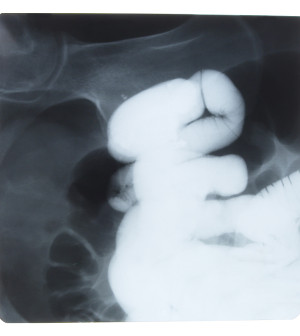- Could Your Grocery Store Meat Be Causing Recurring UTIs?
- Are You Making This Expensive Thermostat Error This Winter?
- Recognizing the Signs of Hypothyroidism
- 10 Strategies to Overcome Insomnia
- Could Artificial Sweeteners Be Aging the Brain Faster?
- Techniques for Soothing Your Nervous System
- Does the Water in Your House Smell Funny? Here’s Why
- Can a Daily Dose of Apple Cider Vinegar Actually Aid Weight Loss?
- 6 Health Beverages That Can Actually Spike Your Blood Sugar
- Treatment Options for Social Anxiety Disorder
Could the ‘Ulcer Bug’ Guard Against Obesity?


Countries with low rates of the ulcer-causing bacterium H. pylori tend to have high rates of obesity, a finding that researchers say they see as more than a chance correlation.
Looking at 49 studies from Australia, Europe, Japan and the United States, the review authors found that in several countries such as Italy, Japan, Portugal and Spain, the majority of the population carried H. pylori. And those countries had relatively low rates of obesity, ranging from 3 percent in Japan to about 15 percent in Spain.
That was in contrast to the United States, for example, where about one-third of adults are obese and around the same percentage carry H. pylori.
None of that, however, proves cause and effect, cautioned an obesity expert who was not involved in the study.
“This study found a simple correlation, at the population level,” said Christopher Ochner, an assistant professor of pediatrics at the Mount Sinai Icahn School of Medicine in New York City.
“This does not mean H. pylori is your friend, and will keep you slim,” he stressed.
And even if the bug does have some direct effect on weight, it would likely be small — and no reason to refuse antibiotics if you have an H. pylori-related ulcer, Ochner added.
“Would you hang on to something that’s doing you harm, so you can lose a pound or two?” he asked.
Dr. Gerald Holtmann, the senior researcher on the review, agreed. “This study does not question the established indications for H. pylori eradication,” said Holtmann, of the University of Queensland in Brisbane, Australia.
There are, though, reasons to believe that the bug can affect weight, Holtmann’s team reported recently in the journal Alimentary Pharmacology and Therapeutics.
Although H. pylori is a major cause of stomach ulcers, most people who harbor the infection — at least half the world’s population — do not develop ulcers. And some researchers have speculated that H. pylori has benefits as well as costs.
Holtmann pointed to a couple studies showing that after people take antibiotics to get rid of H. pylori, they have more weight gain than those with untreated infections. And some animal and human research suggests that the bacteria can affect appetite-regulating hormones.
But whether H. pylori makes a real difference in the battle of the bulge is hard to pin down, according to Holtmann.
For example, the gut is home to trillions of bacteria that are thought to affect digestion, immune function and possibly weight control. And people with and without H. pylori may have a generally different gut-bacteria makeup, Holtmann’s team pointed out.
“The data suggests that either H. pylori itself or other infectious factors linked with H. pylori are significant,” Holtmann said.
Ochner called the new findings “very interesting,” and he agreed that it’s plausible the ulcer bug could have some positive effect on weight.
But he doubted that it could make a big difference on anyone’s bathroom scale.
“Body weight is incredibly complex,” Ochner said. “It involves so many factors. And in my opinion, this will not turn out to be one of the big ones.”
More information
The U.S. National Institute of Diabetes and Digestive and Kidney Diseases has more on H. pylori.
Source: HealthDay
Copyright © 2026 HealthDay. All rights reserved.










